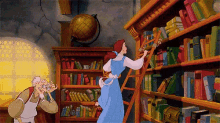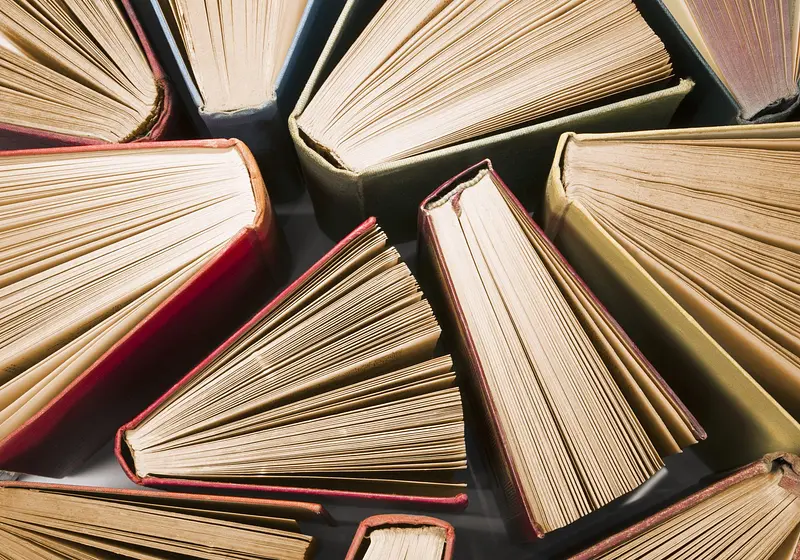"Literature always anticipates life. It does not copy but molds it to its purpose." - Oscar Wilde.
Literature is such a broad word. It is the way we share ourselves, our stories, and our worlds, through writing. I, personally, fell in love with literature when I learned of Folklore by Taylor Swift.
The way she used such eloquent lines and hidden meanings changed my view of literature forever. Four years on, I read tens of books a year and wrote poetry, prose, and articles for TTM. Literature has become such a big part of my life, so I have put together this guide to welcome you, my friends, to The World of Literature.
Let us slide into your dms 🥰
Get notified of top trending articles like this one every week! (we won't spam you)What is Literature?
What is Literature? Literature is any "written artistic works," such as Novels, Poetry, Drama, Prose, etc. These all have subcategories, including but not limited to Fiction, Non-fiction, Mystery, and Comedy.
We use written language for everything, including communication and learning. We can pass information down through generations, keep it secret, or make it public. Literature leaves a lasting mark in this ever-changing world.

(Brief) History of Literature
Since there are so many branches of literature, I could write for years, but this is a very brief summary of Literature.
Literature first appeared in Ancient Mesopotamia, otherwise known as an area in modern-day Iraq, around 3400 BC. Since then, we have had many different eras of literature. I have named all the most relevant ones below, and I am also adding links to more in-depth guides if you would like to read more.
- Classical Era- Ancient Greece and Rome
- Medieval Era- 5th to 15th century
- Renaissance - 14th to 17th century
- Enlightenment - 17th to 19th century
- Romantic Era - Late 18th to mid-19th century
- Victorian Era -19th century
- Modernism - Late 19th to mid-20th century
- Postmodernism - Mid-20th century to present
Before the printing press, we used methods such as tablets, scrolls, papyrus, and parchment to write; our main method of communication was word of mouth.
One problem with literature before the 15th century was that it was predominantly religious and often in Latin. This was because most books were written by monks, which meant only clergy members had access to them. Latin was only taught to the rich and priests. This meant that even if the content was widely available, only a few people could read it.
Once the printing press was widely accepted, books were popping up everywhere. It was much cheaper to make them, so more content was widely available. This had one major impact on our world – it meant that education was available for the vast majority.
Before this change, you had to be rich or of high status to be lucky enough to acquire an education. Now, it is available to everyone; we have made big improvements in our society. Although it might seem like it only helped with literacy, in actuality, without it, we would not have paved the road to make leaps and bounds of progress in science, philosophy, arts, technology, and culture, just to name a few. It also meant they were in the used vernacular, which helped create new languages. And starting education at a younger age, which was a necessity.

Key Traits of Good Literature
While "good" literature is highly subjective, there are some traits that span across many highly regarded books. Such as
Easy readability or Very Descriptive – Some literature uses strong imagery and pages upon pages of descriptions to get the scene across. While this helps readers to engulf themselves in the world, it also takes much longer to read. Other books are clear and precise.
They tell the bones of the story, showing a beginning, middle, and end. While these stories often contain deep tails, it can be hard to grasp the scene without the description.
Universal Themes—We have the same emotions as the Ancient Romans and Greeks of Queen Victoria. We can all relate to love, hate, grief, and envy. Writing literature with these themes helps us feel seen and relate to the author. It also makes the story timeless; we have been heartbroken for millenniums.
Memorable characters – There are two main different types of characters: ones we relate to and ones we glorify. Examples of this are characters such as the March sisters or Holden Caulfield. These are human characters we can relate to and see ourselves in, which makes us remember them.
The other types are characters such as Remus Lupin ( a werewolf). These characters have such bizarre and unreal lives we can't help but remember them.
Emotional Impact – Books with a big emotional impact last longer with us. Big ones for me were "Looking for Alaska" by John Green and "The Dead Poets Society" by Nancy H. Kleinbaum (Tom Schulman).
The emotions and endings in these books still have me thinking about them years after reading them. They have such prominent and memorable endings.

Examples of “great” literature
Some types of “great” literature (subjective) are:
Books
- Romeo and Juliet – William Shakespeare
- Animal Farm – George Orwell
- Ulysses – James Joyce
- Sense and Sensibility – Jane Austen
- The Great Gatsby – Scott Fitzgerald
- Beloved – Toni Morrison
- To Kill A Mockingbird – Harper Lee
- Little Women – Louisa May Alcott
Poems
- The Road Not Taken by Robert Frost
- The Raven by Edgar Allen Poe
- And Still I Rise by Maya Angelou
- I Wandered Lonely as a Cloud by William Wordsworth
- Sonnet 18 by William Shakespeare
What I think is “Great” Literature
As I said, literature is subjective. A 62-year-old male author might not like my choices. And I might not like his.
So these are some of my personal favorites, from a teenage girl to her teenage friends.
Books
- Looking for Alaska by John Green
- Harry Potter (1-7) by J.K Rowling
- Normal People by Sally Rooney
- Everything I know about Love by Dolly Alderton
- Little Women by Louisa May Alcott
- The Pianist from Syria by Aeham Ahmad
- The Book Thief by Markus Zusak
- A Thousand Splendid Suns by Khaled Hosseini
- The Hunger Games (1-3) by Susan Collins
- Carrie Soto is Back by Taylor Jenkins Reid
Poems
- Sanctuary by Jean Valentine
- One Art by Elizabeth Bishop
- Autum Song by Sarojini Naidu
- Those Winter Sundays by Robert Hayden
In closing, Literature is so important for our society. It helps us understand and grow, while also expanding our knowledge and empathy. It is a powerful brilliant thing that we in this age are taking advantage of. So if you’ve read this far, maybe consider one of the many great books listed in this article!

















